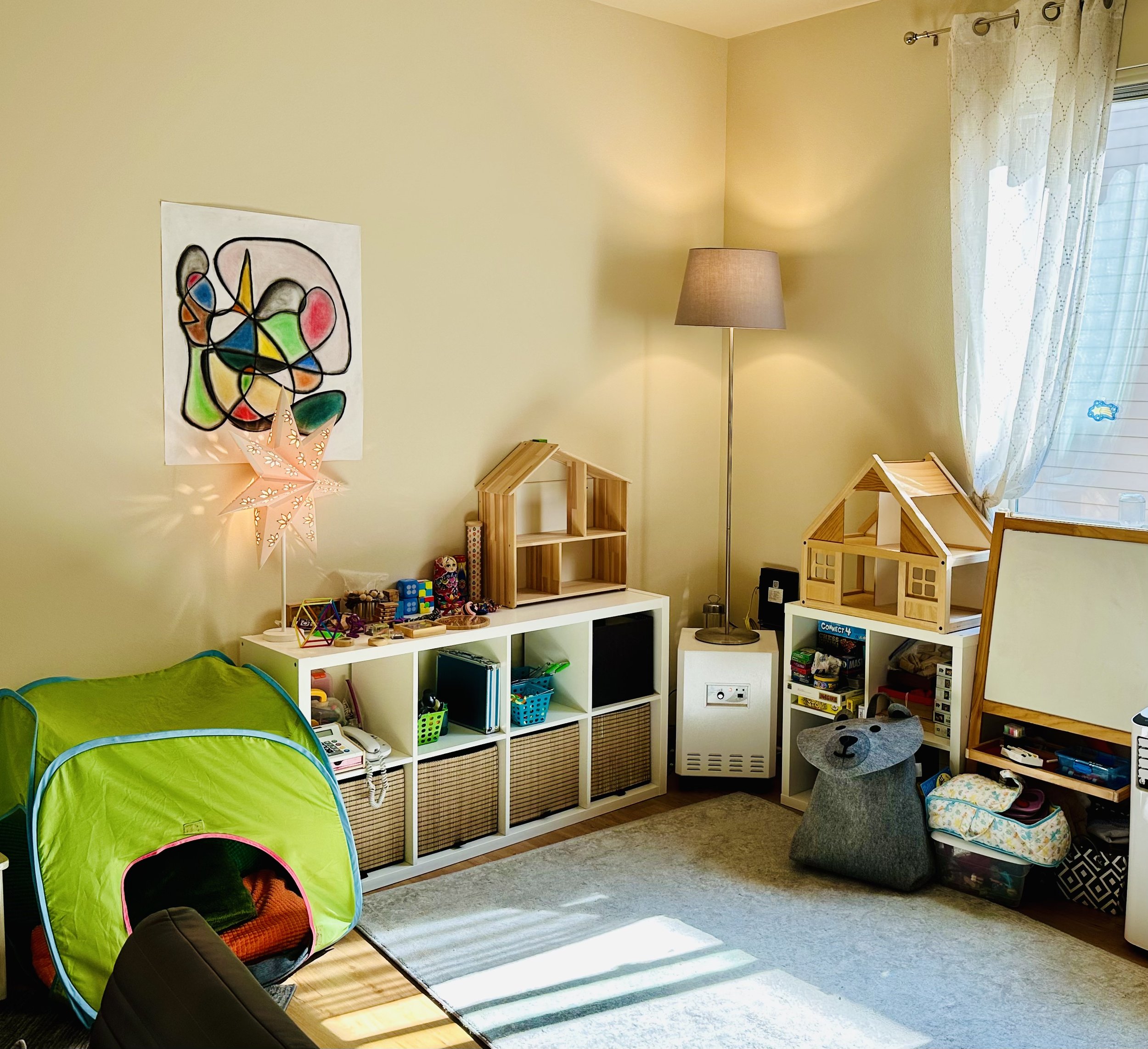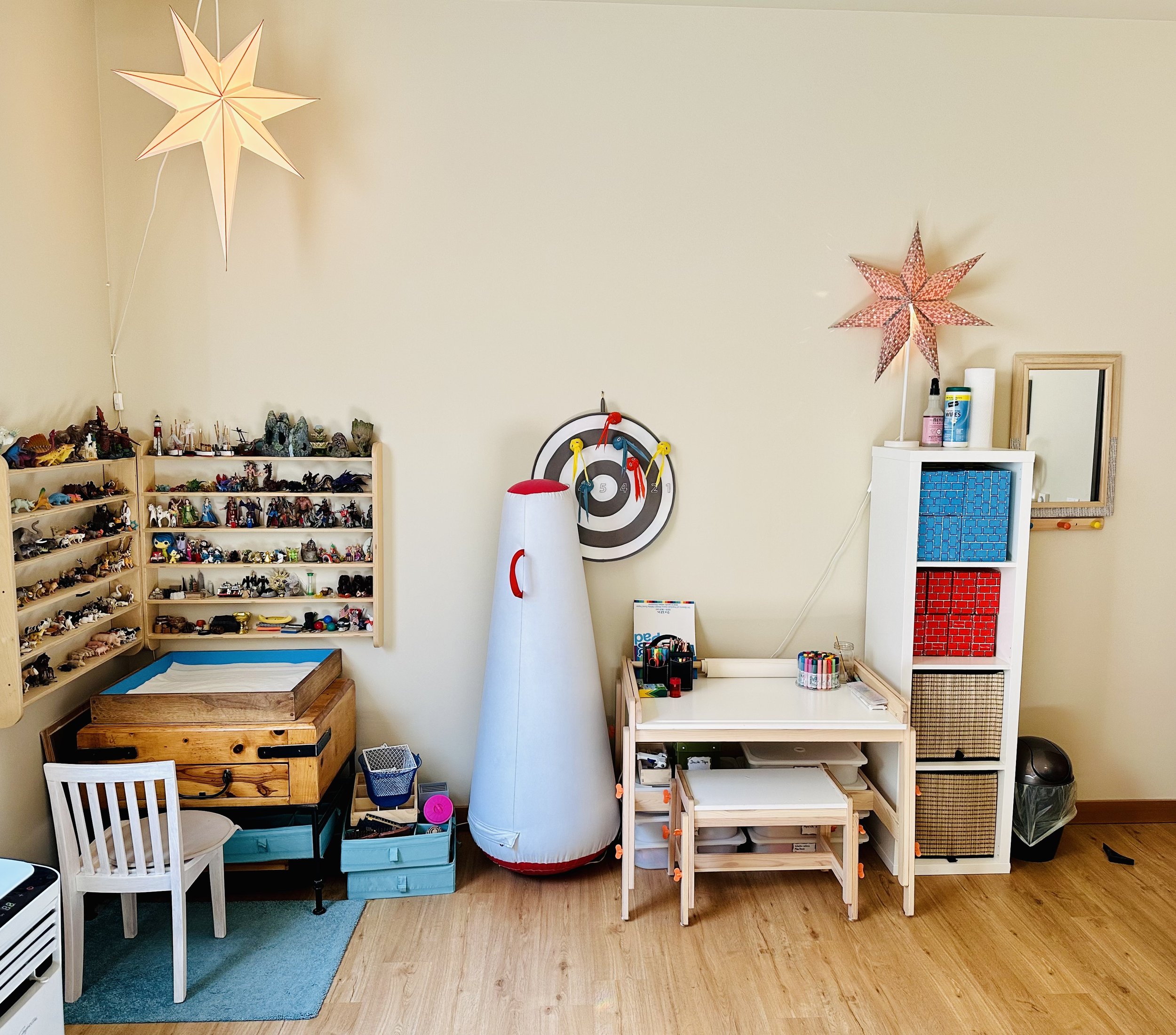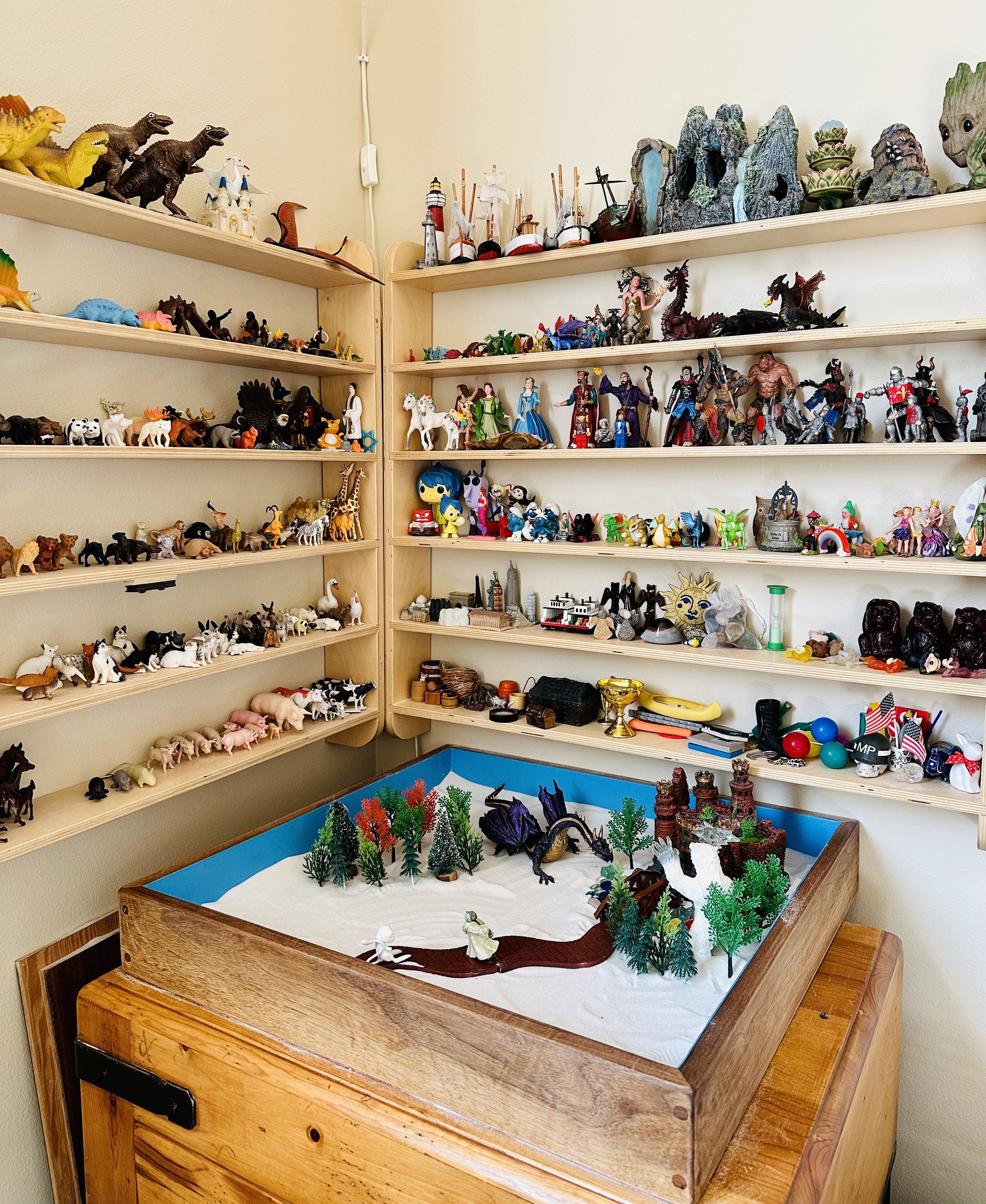
PLAY THERAPY
in Seattle
Helping Your Child Create Better Relationships
It is hard to watch your child struggle
Is your child struggling with big emotions, frequent meltdowns, or difficulty focusing? Maybe they seem withdrawn, anxious, or moody, often feeling sad or lacking confidence. They might have trouble sleeping, resist being away from you, or get into frequent conflicts with siblings or friends.
As a parent, you might feel overwhelmed, frustrated, or even helpless—wondering how to best support your child. You're not alone, and there is help.
As a play therapist, I provide a safe, supportive space where children can express their emotions, understand their feelings, and develop healthier ways to cope. Through play, they can communicate what words sometimes cannot, leading to greater emotional well-being and stronger relationships.
If you're ready to help your child thrive, reach out today.
How Does Play Therapy Work?
Therapy with children looks different from therapy with adults. As a Play Therapist, I use carefully selected toys to help children express their thoughts and emotions. Think of it this way: toys are their words, and play is their language.
Beyond the playroom, a child's well-being is deeply influenced by their family environment. That’s why, as part of treatment, I also work with parents—helping them strengthen their skills and interactions to create a balanced, supportive home life.
Play Therapy is a proven, effective approach. Through therapeutic play, children process their emotions, build coping skills, and work through challenges over time. Most importantly, play makes therapy engaging and enjoyable, allowing children to feel safe, understood, and eager to participate.
I know how overwhelming and confusing the world can feel for a child. My goal is to create a space where they feel comfortable, supported, and empowered to heal.
My Office is a Calm and Safe Place
Exploring
Think of the therapeutic playroom as a sacred place to work through and explore painful fears, anxieties and inadequacies.
Expressing
Play allows children to distance themselves from difficult feelings and memories through symbolic expression, while using the toys as the medium to freely express these feelings.
Experiencing
During this special play time, children learn to solve problems and learn to change their negative behaviors while creating meaning and organizing their experiences to make sense of the world around them.
Children learn to respect themselves.
Children learn that their feelings are acceptable.
Children learn to express their feelings responsibly.
Children learn to assume responsibility for themselves.
Children learn to be creative and resourceful in confronting problems.
Children learn self-control and self-direction.
Children gradually learn, at a feeling level, to accept themselves.
Children learn to make choices and be responsible for their choices.
Garry L. Landreth, The Art of The Relationship (2012)



